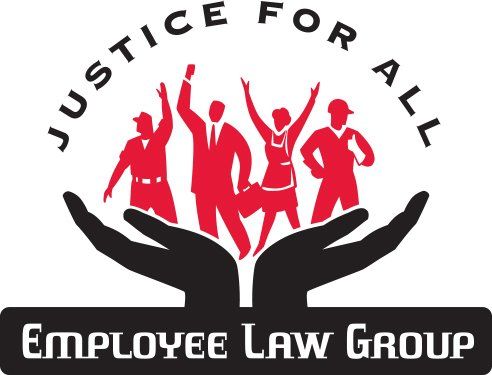- WHO WE HELP
- ABOUT
- GET STARTED
-
CASES WE TAKE
- UNPAID WAGES
- CLASS ACTION SUITS
- FAMILY & MEDICAL LEAVE
- PREGNANCY DISABILITY LEAVE
- HARASSMENT
- NEGOTIATION OF SEVERANCE
- EMPLOYMENT CONTRACT NEGOTIATION
- WORKPLACE CLOSURES
- DEFAMATION OF CHARACTER
- BAD REFERENCES
- EXPENSE REIMBURSEMENT
- ILLEGAL DEDUCTIONS FROM WAGES
- MINIMUM WAGE VIOLATIONS
- UNPAID OVERTIME
- UNPAID COMMISSIONS
- WRONGFUL TERMINATION
- SEXUAL HARASSMENT
- LOS ANGELES EMPLOYMENT LAWYER
- LOS ANGELES DISCRIMINATION LAWYER
- WHISTLEBLOWER RETALIATION
- FAQs
- BLOG
- CONTACT
Unpaid Wages
Unpaid wages are a problem for many California workers, although this is illegal in our state. According to the Economic Policy Institute, about $2 billion in earned wages go unpaid every year. Do you think you have been a victim of unpaid wages in California? It can be confusing to know if this has happened to you and what to do about it. Here are some common examples of unpaid wages — the term applies to many more situations than simply an employer not issuing your paycheck. We also review what California law says about unpaid wages and how an employment attorney can help you get the money you are owed.
What Are Unpaid Wages?
Having unpaid wages means your employer has not paid you for hours you have worked. Unpaid wages can take many forms, depending on the type of job you have and how your work is structured.
One of the most common unpaid wage scenarios is an employer not paying someone the required minimum wage for the state. In California in 2023, that’s $15.50 per hour.
However, if your city or county has a minimum wage that’s higher than that, your employer must pay the higher of the two wages. This includes people who receive tips as part of their compensation, who are often mistakenly told they don’t qualify for the minimum wage in addition to their tips.
Other types of unpaid wages include:
- Making you show up early or stay late without paying you for the extra time (aka off-the-clock duties)
- Forcing you to work through your required break and lunch periods
- Deducting a full 30 minutes for your lunchtime when you only get 10 or 15 minutes
- Shaving small increments of time off your timecard, which adds up over weeks and months
- Falsely editing your timecard or work records to make it look like you worked less than you did
- Firing you in order to avoid paying you a rightfully earned bonus or commission (wrongful termination)
- Paying cash under the table to eliminate wage record keeping
- Not paying you overtime as dictated by California state law (see more below)
- Paying you late for work you have performed
- Failing to pay hazard pay as previously agreed
- Not paying on-call pay as in your work contract
- Misclassifying you as an independent contractor instead of an employee to claim you are exempt from California wage laws
Your employer may have violated unpaid wage laws in multiple categories above. There may also be unpaid wage claims with many other employees. The employer may try to prevent workers from discussing this so they don’t realize how widespread the practice is in your workplace.
Are There California Laws Regarding Unpaid Wages?
The state of California has strict laws protecting workers against unpaid wages. Unpaid wages are a form of wage theft, which is illegal.
In addition to the minimum wage laws discussed above, there are laws stating that you may not be required to work off the clock without compensation. If extra hours exceed the maximum number of work hours in your work agreement, you must be paid overtime pay. It doesn’t matter if you waive a previous agreement with your employer or what your immigration status is.
California divides workers into two categories when it comes to determining if someone has a possible case of unpaid wages: exempt employees and non-exempt employees. Nonexempt workers are people who are employed in technical, professional, mechanical, clerical, and similar jobs, whether you are paid by the hour, by the piece, by commission, or using a similar structure.
Exempt employees are typically independent contractors (aka 1099 workers) and white-collar workers. White-collar positions are typically executives, managers, professionals, and some upper-level administrative jobs. More specifically, to be considered a white-collar employee in California, you must:
- Spend more than 50 percent of your work time engaging in intellectual, creative, or managerial work;
- Have the ability to exercise discretion and independent judgment about performing your job duties; and
- Earn a monthly salary that’s equal to or more than twice the California minimum wage for full-time workers
- All three of these factors must be true. If any of them is not true, you are not an exempt employee.
What Should You Do if You Believe Your Employer Owes You Unpaid Wages?
There are several different steps you can take if you believe you are a victim of unpaid wages in California. First, you want to document as much as you possibly can to help your claim. Keep careful track of the hours you work to the minute so you can compare your records with your pay stub or other documentation from your employer.
If you think it’s safe to do so, you can speak with your employer about missing wages and request to be paid what you are owed. Make sure you put in writing everything you discuss with the employer. Sometimes, unpaid wages are a legitimate mistake, and the employer can rectify the situation.
However, if you feel unsafe or if you speak to your employer and they refuse to make the situation right, you may wish to proceed with more formal actions. You can
file a wage claim
with the California Labor Commissioner’s Office, or you can hire an employment lawyer to help you file a lawsuit against the employer.
How Can an Employment Attorney Help if You Have Unpaid Wages?
While filing a claim with the Labor Commissioner might seem like the easiest route to take, there are several reasons why it can be preferable to work with an employment attorney like Employee Law Group:
- You may not be sure if you have an unpaid wages case, and an experienced attorney can tell you that right away.
- Filing a lawsuit is usually faster than waiting for the state to complete an investigation into unpaid wages and to take action against the employer.
- An attorney may be able to help you reach a settlement with your employer without even going to court, so you get the money you are owed faster.
- Your lawyer can be certain you receive all wages due to you, plus interest and extra monies owed (e.g., double damages for cases that are not good-faith errors or one hour’s wages for each legally required break you did not receive).
- Your case may involve more than only unpaid wages, such as retaliation or wrongful termination, which could result in stiffer penalties for the employer and a larger financial judgment for you.
The more complicated your case or the more unsafe you feel about your job or work environment, the more important it is to have an attorney to protect your rights and help you navigate what can be a complex legal system.
At Employee Law Group, many of our clients also don’t have the time or resources to pursue a court case while they are simultaneously working full-time and tending to personal responsibilities. Our team is here to support you so your unpaid wages case disrupts your life as little as possible.
If you believe you are owed unpaid wages and live in the Los Angeles area, we make it easy to decide the next steps. Your first consultation with Employee Law Group is free and without obligation, so you can see if you have a case and what potential outcomes await. To schedule your consultation, call us at 310-407-7358, or reach out online to let us know how we can assist.









EMPLOYEE LAW GROUP | JUSTICE FOR ALL
21250 Hawthorne Blvd. Suite 500, Torrance CA, 90503
500 Capitol Mall, Suite 2350, Sacramento, CA, 95814

